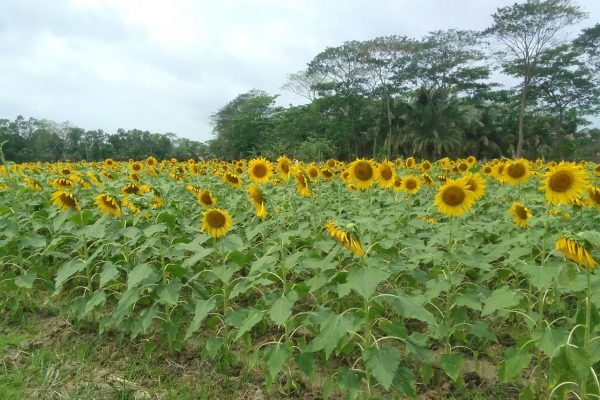Reading Time: 3 minutes
Health crises have huge social and economic costs as witnessed in the recent COVID-19 pandemic. BRAC is addressing this challenge by promoting preventive healthcare and raising awareness about this deadly pathogen.
The COVID-19 pandemic has affected the lives of people in every corner of the world. In Bangladesh, this pandemic, coupled with subsequent lockdowns imposed by the government to curb infection rates, have severely affected people’s livelihoods, particularly in low-income communities.
As a response to the pandemic, BRAC Health, Nutrition and Population Programme has continued providing affordable, and quality healthcare services to urban communities through six urban health centres in the capital, in the following areas: Badda, Jatrabari, Kamrangirchar, Mirpur, Shampur and Mohammadpur.
Over the last few decades, BRAC’s health programme has evolved to provide health education, awareness, and general healthcare services to both rural and urban communities. In 2018, the programme launched the urban health centre as a social enterprise model with an aim to provide comprehensive general healthcare services to the urban population through a centre-based approach, by leveraging its frontline community healthcare workers.
The past three years of operations have yielded certain lessons, with the constant need to adapt to new healthcare space changes.
Services provided at the urban health centres
Doctor consultations: There is currently a pool of 30 doctors providing consultation services at the centres, ranging from gynaecology, medicine, surgery and pediatrics, among others. The doctors work in rotational shifts in morning and afternoon.
Diagnostics: The pathology lab integrated at the health centre can conduct over 40 tests, covering fields spanning hematology, microbiology, biochemistry, and many more. A trained lab technician oversees the pathology process, and an experienced pathologist endorses the test results to ensure quality. These health centres also provide imaging tests like USG and ECG, which are conducted by qualified doctors and sonologists.
Medicine: The model medicine shops at the health centres are fully stocked with medicines and healthcare essentials. The vast array of pharmaceutical products on the shelves ensure the availability of quality medicine at the health centres.
Childbirth: The health centres consist of delivery units that provide life-saving maternal healthcare services like child delivery. The deliveries are performed by midwives under the supervision of doctors.

Photo Credit:Nasim©BRAC
COVID-19 response
As part of our measures to tackle the pandemic, BRAC’s health programme has equipped the centres and field staff with personal protective equipment to continue the general healthcare services while ensuring the safety of the staff body. Furthermore, the waiting areas have been reorganised to help clients maintain social distancing in the premises.
A major part of our engagement with the urban communities involved holding outdoor events like health camps (to spread awareness on emerging health issues), and conducting centre-based promotional events. These events had to be phased out to ensure social distancing measures, and the centres transitioned towards digital platforms by connecting with clients through telephone and SMS, reassuring them that the centres were open to provide the much-needed general healthcare services.
At present, patients are making appointments for physical consultations over telephone or SMS. The preliminary conversation involves understanding whether the patient is experiencing COVID-19 symptoms or not. When the patients arrive at the health centres, their body temperatures are checked, they are given sanitisers for their hands and disinfectants are sprayed on their sandals.
The community healthcare workers strictly adhere to COVID-19 safety measures, wearing face masks and gloves, and maintaining social distancing while interacting with clients. This allows antenatal checkups to continue unabated, while complicated cases are referred back to the health centres.
During the COVID-19 pandemic and subsequent countrywide lockdowns, all businesses and educational institutions have remained shut, except for pharmacies, grocery stores, and other essential service facilities. To cater to the increasing demand for pharmaceutical products, BRAC’s health programme launched model dispensaries in 2020.
Currently, there are three dispensaries being operated and three others are in the process of being launched. The dispensaries also provide a limited-scale home delivery in the communities.
Patients can place orders for prescription medicines over the phone, which are delivered to their doorsteps within two to three hours. This service is particularly crucial for people living with chronic health conditions, who are unable to leave the house to buy essential medicines due to their heightened health risks.
Addresses of urban health centres (UHC) in Dhaka:
UHC Badda: House 298, Shadhinata Sharani (Jamtolar Mor), Uttar Badda, Dhaka-1212
UHC Mirpur: House 10, Road 11, Mirpur Dhaka-1216
UHC Kamrangirchar: House 87 (beside Walton Showroom), Pakapul Asrafabad Main Road, Dhaka-1211
UHC Jatrabari: House 34/F Dholpur Shutikhalpar, Jatrabari Dhaka-1204
UHC Mohammadpur: House 27, Road 06, Nabinagor Housing Society, Mohammadpur Dhaka-1207
UHC Shampur: House 784/A/23 East Jurain (Mishtir dokan), Shampur, Dhaka-1204
Mir Aasif Zaman is an Assistant Manager at BRAC Health, Nutrition and Population Programme





